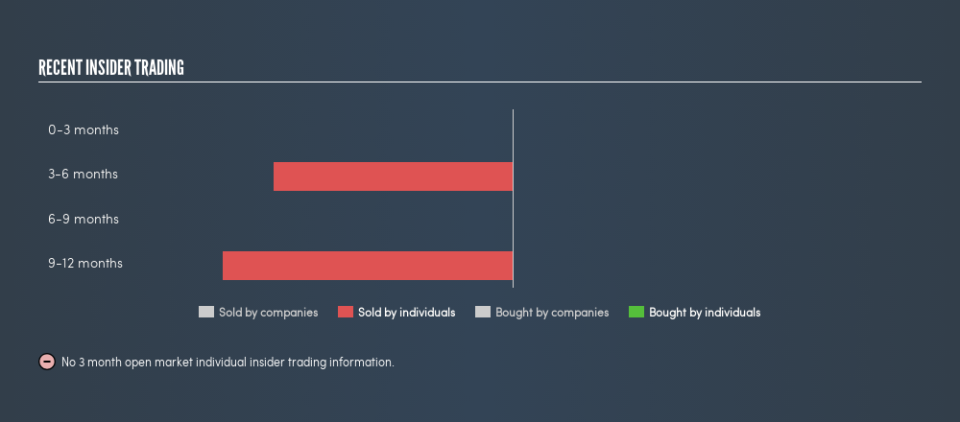Need To Know: Intuit Inc. (NASDAQ:INTU) Insiders Have Been Selling Shares

We've lost count of how many times insiders have accumulated shares in a company that goes on to improve markedly. On the other hand, we'd be remiss not to mention that insider sales have been known to precede tough periods for a business. So shareholders might well want to know whether insiders have been buying or selling shares in Intuit Inc. (NASDAQ:INTU).
What Is Insider Selling?
Most investors know that it is quite permissible for company leaders, such as directors of the board, to buy and sell stock in the company. However, such insiders must disclose their trading activities, and not trade on inside information.
We would never suggest that investors should base their decisions solely on what the directors of a company have been doing. But logic dictates you should pay some attention to whether insiders are buying or selling shares. For example, a Harvard University study found that 'insider purchases earn abnormal returns of more than 6% per year.'
See our latest analysis for Intuit
Intuit Insider Transactions Over The Last Year
The Executive VP and Chief People & Places Officer, Laura Fennell, made the biggest insider sale in the last 12 months. That single transaction was for US$4.3m worth of shares at a price of US$252 each. So it's clear an insider wanted to take some cash off the table, even below the current price of US$271. As a general rule we consider it to be discouraging when insiders are selling below the current price, because it suggests they were happy with a lower valuation. Please do note, however, that sellers may have a variety of reasons for selling, so we don't know for sure what they think of the stock price. It is worth noting that this sale was only 38.1% of Laura Fennell's holding.
In the last twelve months insiders netted US$11m for 46591 shares sold. In the last year Intuit insiders didn't buy any company stock. You can see the insider transactions (by individuals) over the last year depicted in the chart below. If you click on the chart, you can see all the individual transactions, including the share price, individual, and the date!
I will like Intuit better if I see some big insider buys. While we wait, check out this free list of growing companies with considerable, recent, insider buying.
Insider Ownership
Another way to test the alignment between the leaders of a company and other shareholders is to look at how many shares they own. I reckon it's a good sign if insiders own a significant number of shares in the company. Intuit insiders own about US$2.6b worth of shares (which is 3.7% of the company). I like to see this level of insider ownership, because it increases the chances that management are thinking about the best interests of shareholders.
What Might The Insider Transactions At Intuit Tell Us?
The fact that there have been no Intuit insider transactions recently certainly doesn't bother us. While we feel good about high insider ownership of Intuit, we can't say the same about the selling of shares. If you are like me, you may want to think about whether this company will grow or shrink. Luckily, you can check this free report showing analyst forecasts for its future.
Of course Intuit may not be the best stock to buy. So you may wish to see this free collection of high quality companies.
For the purposes of this article, insiders are those individuals who report their transactions to the relevant regulatory body. We currently account for open market transactions and private dispositions, but not derivative transactions.
We aim to bring you long-term focused research analysis driven by fundamental data. Note that our analysis may not factor in the latest price-sensitive company announcements or qualitative material.
If you spot an error that warrants correction, please contact the editor at editorial-team@simplywallst.com. This article by Simply Wall St is general in nature. It does not constitute a recommendation to buy or sell any stock, and does not take account of your objectives, or your financial situation. Simply Wall St has no position in the stocks mentioned. Thank you for reading.

 Yahoo Finance
Yahoo Finance 
